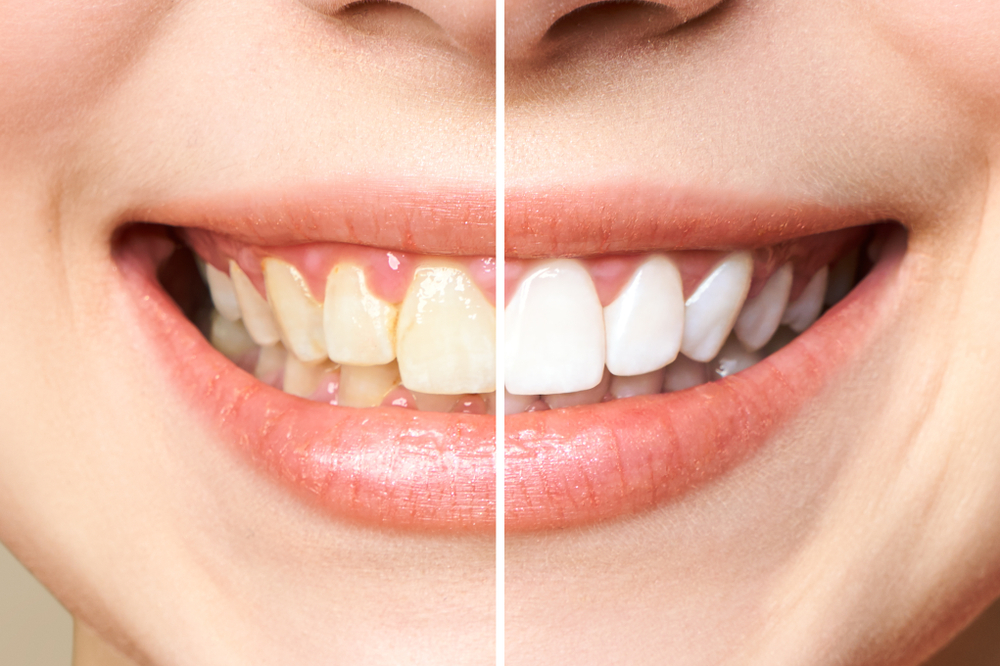Introduction
Are you striving to achieve a radiant, Hollywood-white smile? While teeth whitening can work wonders in boosting your confidence, it may come with an unexpected side effect: zingers. These brief, intense sensations of pain are often caused by the whitening agents reacting with nerve endings in your teeth. Fret not, for there are effective measures you can take to mitigate these zingers and enjoy a pain-free, brighter smile.

Image: www.trysnow.com
Understanding Tooth Zingers
Tooth zingers, technically known as transient dental sensitivity, arise from the temporary opening of dentinal tubules, microscopic channels that connect the enamel to the tooth’s inner nerve. When subjected to external stimuli, such as cold liquids or biting into hard foods, these tubules can trigger the nerve endings, resulting in the familiar sharp sensation we know as zingers.
Effective Remedies for Tooth Zingers
1. Use Desensitizing Toothpaste:
Desensitizing toothpastes contain ingredients like potassium nitrate or strontium chloride, which can block or reduce the transmission of pain signals to the nerves. Use these toothpastes regularly to gradually alleviate zingers.
2. Rinse with Fluoride Mouthwash:
Fluoride helps strengthen tooth enamel and reduces sensitivity by blocking the dentinal tubules. Rinse with fluoride mouthwash daily to supplement the benefits of desensitizing toothpaste.
3. Chew Sugar-Free Gum:
Chewing sugar-free gum stimulates saliva production, which naturally washes away food particles and acidic substances that can irritate the teeth. Chewing gum also helps neutralize acids, further reducing sensitivity.
4. Avoid Acidic Foods and Drinks:
Acidic substances like citrus fruits, juices, and carbonated beverages can aggravate tooth sensitivity. Limit their consumption or rinse your mouth with water after ingesting them.
5. Protect Your Gums:
Whitening agents can irritate gum tissue, making it more sensitive. Apply a gum protector or use a toothbrush with soft bristles to avoid aggravating your gums.
6. Gradual Whitening:
Gradual whitening can help minimize zingers. Start with low-strength whitening products and gradually increase the concentration as your teeth adjust.
7. Use a Straw:
When consuming cold beverages like iced coffee or soda, use a straw to prevent direct contact with your teeth. This helps reduce the risk of zingers.
8. Anti-Inflammatory Medication:
Over-the-counter anti-inflammatories like ibuprofen can temporarily reduce the pain associated with zingers. Take these medications only as directed.
9. Visit a Dentist:
If home remedies fail to alleviate the zingers or if they persist for an extended period, consult a dentist. They can assess your dental health and recommend stronger desensitizing treatments or identify any underlying dental conditions.
Prevention is Key
While there’s no foolproof way to guarantee the absence of zingers, proactive measures can minimize their severity. Regular brushing, flossing, and dental check-ups help maintain healthy teeth and gums, reducing the likelihood of sensitivity.

Image: zengreenlife.com
How To Get Rid Of Zingers After Whitening
Don’t Let Zingers Spoil Your Smile
Tooth zingers can be an unwelcome side effect of teeth whitening, but with the right strategies, you can effectively manage and overcome them. Remember, zingers are usually temporary, and with proper care, you’ll soon be enjoying a radiant smile free of pain and discomfort.





:max_bytes(150000):strip_icc()/ideas-for-removing-odors-from-wood-3536463-FINAL-54b76a445dfb41acb4ba0c413bd80e80.png?w=740&resize=740,414&ssl=1)

